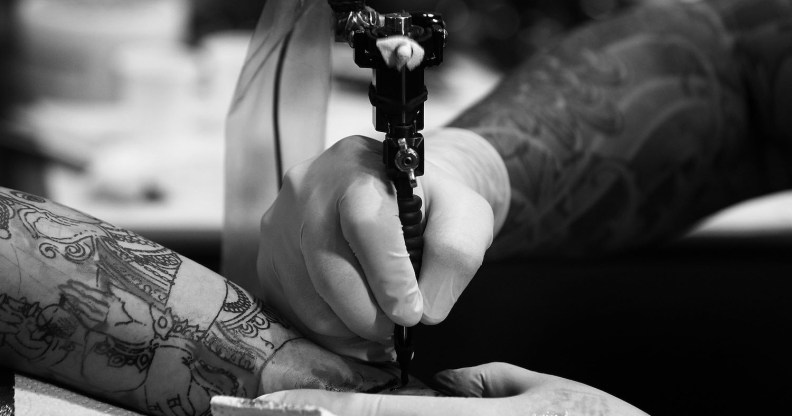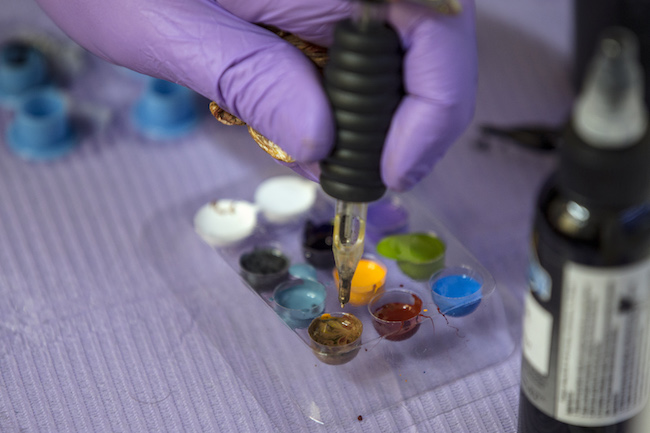Ask the Lawyer: Did a tattoo artist break the law by refusing to serve me because I’m HIV-positive?

PinkNews brings you the latest in a series of features which sees your real questions answered by leading lawyers at Simpson Millar.
The question comes from a person who is HIV-positive and who was turned away from a tattoo parlour because of their status.
They ask: “I am HIV-positive. I went to get a tattoo and was turned away after I answered a questionnaire revealing my status – is it legal for the tattoo parlour to refuse service to me because of my HIV status?”

A Simpson Millar lawyer answers, saying: “Several laws were designed specifically to protect individuals against discrimination on the basis of certain protected characteristics. These laws include the Equality Act 2010 and the Disability Discrimination Act.
“The Equality Act 2010 (from now on we’ll refer to it simply as the Equality Act) is a powerful and relatively new tool that can be used to fight discrimination. It classifies discrimination against a HIV-positive person as discrimination on the basis of a disability. The rules in the Equality Act apply to the tattoo parlour that refused to serve you.
“There are some exceptions in the Equality Act to the rule against discrimination, the relevant one here being ‘discrimination arising from disability’. Essentially, discrimination can be justified if it can be shown to be a proportionate means of achieving a legitimate aim. In your situation, a legitimate aim might be to protect staff and other clients from HIV transmission.
“However, it is doubtful that simply refusing to serve HIV-positive members of the public is a proportionate means of achieving this aim. Safe practices by tattoo parlours are sufficient to negate the risk of HIV infection.
“The NHS website suggests any risk is mitigated by using sterilised needles and the United States’ Center for Disease Control notes there are no known cases in the US of HIV infection through tattoos or piercings. The ‘Tattooing and body piercing guidance toolkit’ endorsed by the Chartered Institute of Environmental Health and Public Health England, amongst others, reinforces the importance of safe practices and adequate training, yet it does not condone refusing to serve all HIV-positive persons.”
Adding: “The Equality Act imposes an obligation on service providers to make reasonable adjustments. There is a strong case to make that taking extra precautions to mitigate risks of HIV transmission, like proper disinfecting and sanitation controls, is a reasonable adjustment that could be expected of a tattoo parlour.
“The tattoo parlour should not have turned you away since this constituted discrimination on the basis of a disability. It also appears to have shirked its duty to make reasonable adjustments, which could be as simple as ensuring they only use new or sterilized needles, ink and other supplies. Generally, a tattoo parlour that complies with industry best practices should not have any issues serving clients who are HIV-positive.
“If you’d like to discuss this further, one of our Dispute Resolution solicitors will be happy to speak to you. Contact us on 0800 260 5005 or click here to request a call-back.”
Disclosure: Simpson Millar is a PinkNews advertiser


